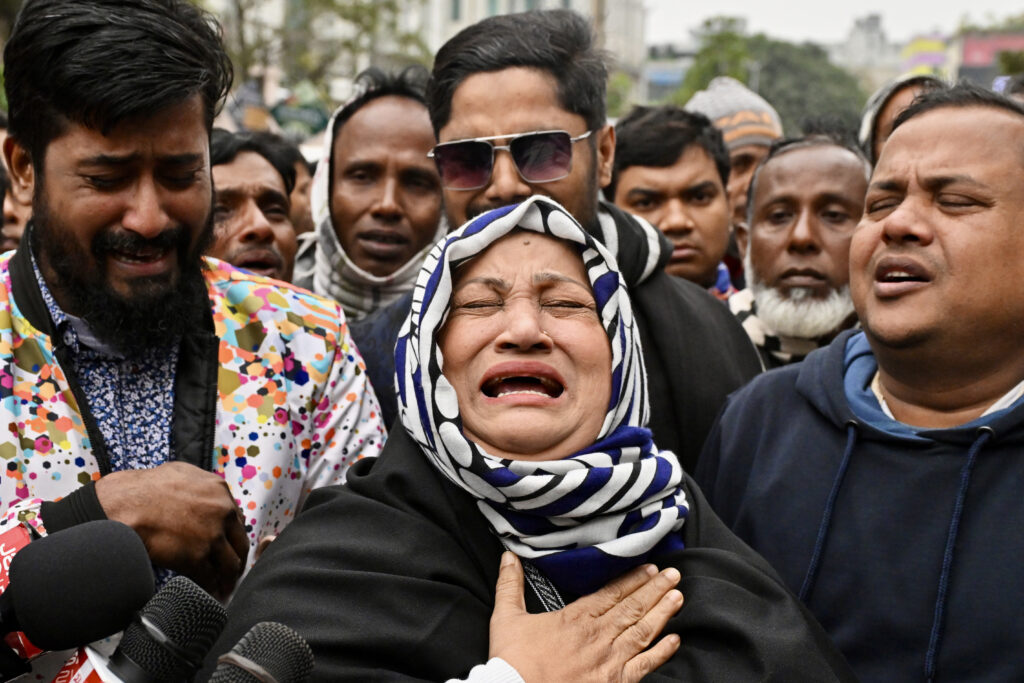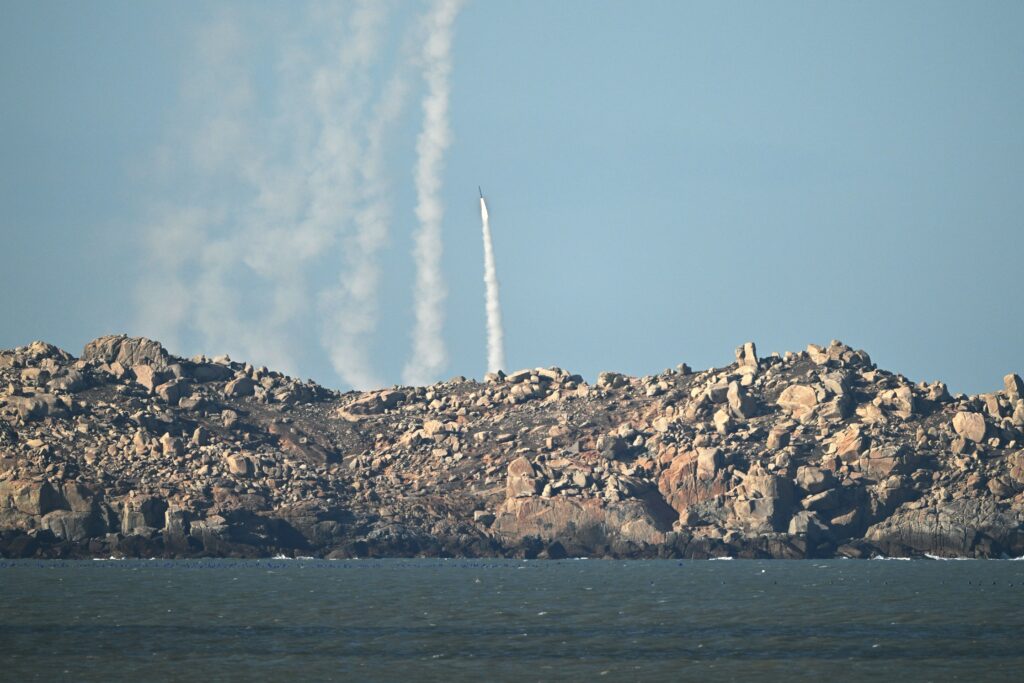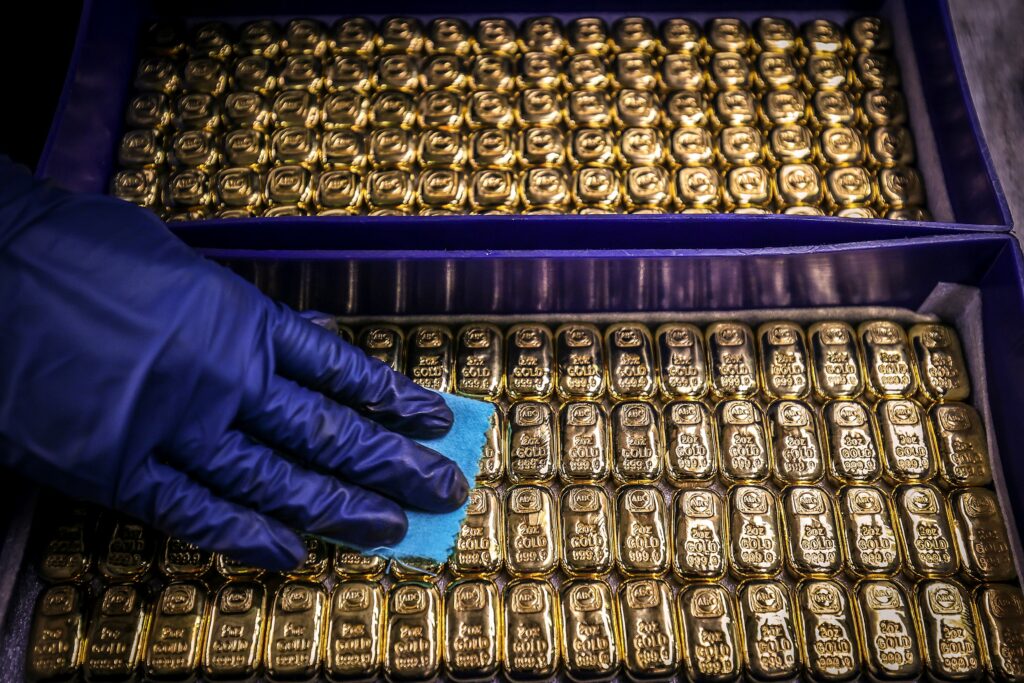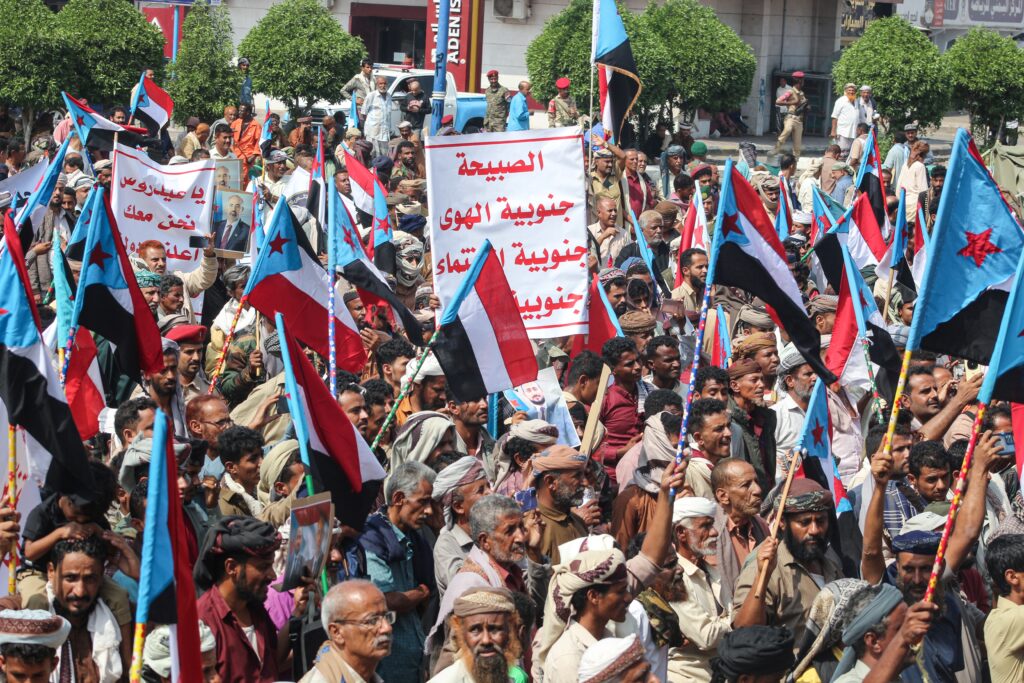Bangladesh’s former prime minister Khaleda Zia dies aged 80
Bangladesh’s former prime minister Khaleda Zia, who many believed would sweep elections next year to lead her country once again, died on Tuesday aged 80.The government declared three days of state mourning for the country’s first woman prime minister, with vast crowds expected to attend her funeral on Wednesday.Despite years of ill health and imprisonment, Zia vowed in November to campaign in elections set for February — the first vote since a mass uprising toppled her arch-rival Sheikh Hasina last year.Zia’s Bangladesh Nationalist Party (BNP) is widely seen as a frontrunner, and her son Tarique Rahman, who returned only on Thursday after 17 years in exile, is seen a potential prime minister if they win a majority.”The country mourns the loss of a guiding presence that shaped its democratic aspirations,” Rahman said in a statement.He said he was also mourning the loss of the “infinite love” of his mother, who “endured repeated arrests, denial of medical care, and relentless persecution”.”Yet even in pain, confinement, and uncertainty, she never stopped sheltering her family with courage and compassion. Her resilience… was unbreakable.”In late November Zia was rushed to hospital, where, despite the best efforts of medics, her condition deteriorated from a raft of health issues.Nevertheless, hours before her death, party workers had on Monday submitted nomination papers on her behalf for three constituencies for the polls. The BNP said Zia died shortly after dawn on Tuesday.Interim leader Muhammad Yunus said Bangladesh “has lost a great guardian”.”Through her uncompromising leadership, the nation was repeatedly freed from undemocratic conditions and inspired to regain liberty,” Nobel Peace Prize winner Yunus said in a statement.Indian Prime Minister Narendra Modi said he hoped Zia’s “vision and legacy will continue to guide our partnership”, a warm message despite the strained relations between New Delhi and Dhaka since Hasina’s fall.Pakistan’s Prime Minister Shehbaz Sharif said Zia had been a “committed friend” to Islamabad, while China’s ambassador in Dhaka Yao Wen offered his condolences.”China will continue to maintain its longstanding and friendly ties with the BNP,” he said.- ‘Prison over luxury’ -Braving cold rain, mourners gathered on Tuesday outside the hospital in Dhaka where Zia’s body rests.”This is an irreparable loss for the nation,” senior BNP leader Ruhul Kabir Rizvi told reporters, his voice choking with emotion.”She chose prison over luxury and spent years behind bars,” said Golam Kibria, 29, a BNP loyalist who said he was tortured under Hasina’s government, calling Zia an “unmatched leader who can never be replaced”.Three-time prime minister Zia was jailed for corruption in 2018 under Hasina’s government, which also blocked her from travelling abroad for medical treatment.Zia was released last year, shortly after Hasina was forced from power.Hasina, 78, sentenced to death in absentia in November for crimes against humanity, remains in hiding in her old ally India.”I pray for the eternal peace and forgiveness of Begum Khaleda Zia’s soul,” Hasina said, in a statement on social media by her now banned Awami League party.Bangladesh’s Prothom Alo newspaper, which said Zia had “earned the epithet of the ‘uncompromising leader'”, reported that Rahman and other family members were by her side at the time of her death.”The lives of politicians are marked by rises and falls,” the newspaper wrote on Tuesday.”Lawsuits, arrests, imprisonment, persecution, and attacks by adversaries are far from uncommon. Khaleda Zia endured such ordeals at their most extreme.”
Sur une île chinoise proche de Taïwan, les exercices militaires nourrissent les rêves d’unification
Sur l’île chinoise de Pingtan mardi, un groupe de touristes tournent autour d’un petit temple perché sur des rochers qui surplombent la mer, lorsqu’un bruit de tonnerre surgit depuis un îlot proche, laissant apercevoir une roquette dans le ciel bleu clair.Située à seulement 130 kilomètres des côtes taïwanaises, Pingtan se trouve en première ligne des …
Precious metals fall again, stocks mixed as traders wind down
Precious metals extended losses Tuesday on profit-taking after hitting recent records, while equities fluctuated in quiet trade as investors wound down ahead of the New Year break.Traders were taking it easy in the last few days of 2025 following a stellar 12 months that have seen tech firms push several stock markets to all-time highs, while bitcoin, gold and silver have also enjoyed multiple peaks.Minutes from the Federal Reserve’s most recent policy meeting — at which it cut interest rates a third straight time — are due to be released later in the day and will be scanned for an idea about whether a fourth can be expected in January.The US central bank’s monetary easing in the back end of this year has been a key driver of the markets’ rally, compounding a surge in the tech sector on the back of the vast amounts of cash pumped into all things AI.It has also helped offset recent worries about a possible tech bubble and warnings that traders might not see a return on their investments in artificial intelligence for some time.Still, Asian markets have enjoyed a healthy year, with Seoul’s Kospi piling on more than 75 percent and Tokyo’s Nikkei 225 more than 26 percent — both having hit records earlier in the year.But the two edged down Tuesday, with Sydney, Mumbai and Taipei also lower. Hong Kong, Singapore, Wellington, Bangkok and Jakarta rose. Shanghai was flat.London rose at the open, Frankfurt was flat and Paris dipped.The mixed performance followed losses for all three main indexes on Wall Street.The big moves of late have been seen in precious metals, with gold hitting a record just shy of $4,550. Silver, meanwhile, topped out at $84 after soaring around 150 percent this year.Investors have been piling into the commodities on bets for more US rate cuts, a weaker dollar and geopolitical tensions.Silver has also been boosted by increased central bank purchases and supply concerns.However, both metals have pulled back sharply this week on profit-taking, with gold now around $4,360 and silver at $74.50.”Headlines screamed collapse, but zooming out, all that really happened was a reset to three- or four-day levels,” wrote SPI Asset Management’s Stephen Innes.”The market ran hot, tripped over its own shoelaces, and landed back where it had been standing earlier in the week. One beneficial side effect is that silver flushed enough excess to no longer screen as overbought, which matters more than the move itself.”Oil dipped, having jumped more than two percent Monday when investors rowed back bets on peace talks to end Russia’s war with Ukraine as a meeting between US President Donald Trump and Ukrainian counterpart Volodymyr Zelensky ended with little progress.That surge followed Friday’s similar-sized rally on optimism for a breakthrough to end the nearly four-year conflict.An end to the war could see sanctions on Russian oil removed, which would see a huge fresh supply hit the market.Bitcoin, which has tumbled since spiking above $126,000 in October, was stabilising just below $90,000 after a shaky end to the year.- Key figures at around 0815 GMT – Tokyo – Nikkei 225: DOWN 0.4 percent at 50,339.48 (close) Hong Kong – Hang Seng Index: UP 0.9 percent at 25,854.60 (close) Shanghai – Composite: FLAT at 3,965.12 (close)London – FTSE 100: UP 0.1 percent at 9,878.94 Euro/dollar: UP at $1.1768 from $1.1766 on MondayPound/dollar: DOWN at $1.3503 from $1.3504Dollar/yen: DOWN at 156.00 yen from 156.06 yen Euro/pound: UP at 87.15 pence from 87.00 pence West Texas Intermediate: FLAT at $58.07 per barrelBrent North Sea Crude: FLAT at $61.92 per barrelNew York – Dow: DOWN 0.5 percent at 48,461.93 (close)
Etat d’urgence au Yémen, où Ryad accuse les Emirats d’actes “extrêmement dangereux”
Le Yémen a décrété mardi l’état d’urgence après des frappes de son allié et voisin saoudien, qui accuse les Emirats arabes unis d’agir de façon “extrêmement dangereuse” dans ce pays en soutenant les séparatistes.Déjà affaibli par un conflit de longue date avec les rebelles Houthis, le pays le plus pauvre de la péninsule arabique, au coeur de rivalités régionales, a vu s’ouvrir début décembre un nouveau front.Le mouvement séparatiste du Conseil de transition du Sud (STC), qui est pourtant membre du gouvernement, s’est emparé ces dernières semaines de vastes portions de territoire, sans rencontrer de grande résistance. Et ses partisans l’appellent à rétablir un Etat dans le sud du Yémen, où une République démocratique et populaire a été indépendante entre 1967 et 1990.Malgré les avertissements de l’Arabie saoudite, allié du gouvernement yéménite, le STC n’a pas battu retraite et mardi aux premières heures de la matinée, la coalition dirigée par Ryad a annoncé avoir visé des cargaisons d’armes au Yémen destinées aux séparatistes, accusant Abou Dhabi d’être à l’origine de ces livraisons.”En raison des risques et de l’escalade que représentent ces armes, qui menacent la sécurité et la stabilité, les forces aériennes de la coalition ont mené ce matin une opération militaire limitée visant les armes et les véhicules de combat qui avaient été déchargés des deux navires dans le port d’al-Mukalla”, a rapporté l’agence officielle saoudienne SPA.- “Menace” -Dans un communiqué, le ministère saoudien des Affaires étrangères a exprimé ses regrets face au fait que les Emirats aient “poussé” les séparatistes à mener des opérations militaires à “la frontière sud du royaume (…) constituant une menace pour la sécurité” de l’Arabie saoudite et de la région, en ajoutant que “les mesures prises par l’Etat frère des Emirats arabes unis (étaient) extrêmement dangereuses”. Le Conseil présidentiel, soutenu par Ryad, a de son côté indiqué qu’il annulait un pacte de défense avec les Emirats arabes unis, et déclaré l’état d’urgence sur tout le territoire. “Les équipages de deux bateaux ont désactivé leurs systèmes de suivi et déchargé une grande quantité d’armes et de véhicules de combat pour soutenir les forces du STC”, a indiqué l’agence SPA, précisant que les navires étaient arrivés du port de Fujairah, sur la côte est des Emirats arabes unis.Selon la même source, l’opération n’a fait aucune victime.Les Emirats n’ont pas réagi dans l’immédiat à cette annonce.Dans une vidéo d’images aériennes diffusée sur les réseaux sociaux par l’agence, on peut voir du mouvement sur des bateaux, puis des dizaines de véhicules circuler dans le port avant de se rassembler sur un terrain vague.Un responsable de l’infrastructure, qui a requis l’anonymat, a expliqué à l’AFP avoir reçu un appel à évacuer vers 04H00 (01H00 GMT), “un quart d’heure avant la frappe”.”L’évacuation s’est terminée et une frappe a eu lieu un quart d’heure plus tard sur un terrain vague à l’intérieur du port. Il y a toujours des flammes. Nous n’avons pas pu amener des camions de pompiers par crainte d’explosions”, a-t-il poursuivi.Les autorités ont fermé les routes vers le port, a constaté un journaliste de l’AFP sur place.Le chef de la diplomatie américaine, Marco Rubio, avait appelé vendredi à la “retenue”, tout en évitant de prendre parti entre l’Arabie saoudite et les Emirats arabes unis, deux partenaires clés de Washington.Ces nouvelles tensions pourraient fragiliser davantage encore le pays le plus pauvre de la péninsule arabique, au coeur de rivalités régionales.Un conflit a éclaté en 2014 entre d’un côté, le gouvernement et ses alliés, dont le STC, et de l’autre, les rebelles houthis pro-iraniens, faisant des centaines de milliers de morts, morcelant le pays et provoquant l’une des pires crises humanitaires au monde. Une trêve conclue en 2022 est globalement respectée.La coalition dirigée par l’Arabie saoudite, rivale de l’Iran, avait été créée en 2015 pour apporter son soutien au gouvernement yéménite.




